Call For Abstracts
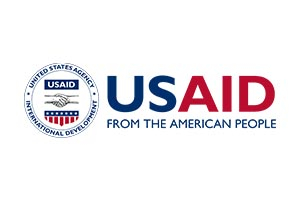
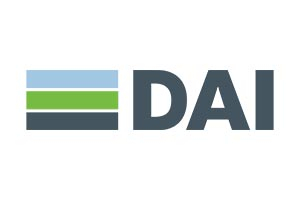
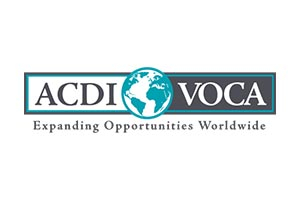
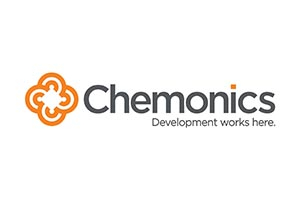
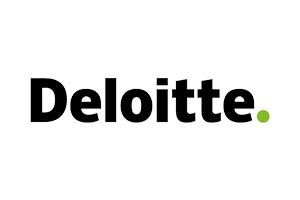
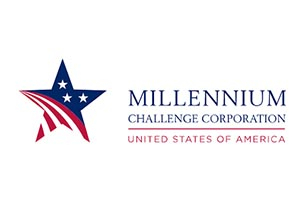
CALL FOR ABSTRACTS: Africa SBC Summit 2024
Cultivating Resilience and Relevance: Harnessing Community Insights and Innovation for SBC Impact in Africa.
INTRODUCTION
The African Society for Social and Behavior Change (AS-SBC) is accepting abstracts for the Africa SBC Summit in 2024. This summit aims to bring together innovative concepts and practices in Social and Behavioral Change (SBC) tailored to African people’s dynamic culture and context. The Summit’s central theme of “Cultivating Resilience and Relevance” focuses on adapting SBC methodologies to keep pace with the technological advancements and societal changes unique to Africa. It highlights the resilience of communities seeking to strengthen their capacity to cope with and recover from various challenges while maintaining core functions and integrity. The emphasis on resilience has two aspects: sustaining progress and fortifying households and communities to endure and adapt. Meanwhile, the theme also focuses on culturally relevant SBC interventions – strategies carefully designed within African contexts to ensure efficacy and acceptance. It prompts us to tailor SBC approaches through the lens of cultural nuances, recognizing the diverse traditions and values that define African societies.
The summit’s goal is to foster dialogue on integrating these elements into the design and application of SBC programs. By drawing on the rich local knowledge and communal wisdom across the continent, the aim is to forge SBC frameworks that are contextually resonant with community needs and equipped to evolve with Africa’s dynamic story. The Summit is a call to action for SBC practitioners and thinkers to align their work with the lived realities of African communities, ensuring their SBC strategies and approaches are relevant in this context.
The theme sets the tone for the Africa SBC Summit and shapes the knowledge shared through abstracts and the discourses at the summit.
Regarding abstracts
We are extending an invitation to submit various topics, including program results backed by research, program evaluations, and case studies. These abstracts should focus on SBC interventions rooted in African communities’ social, economic, and cultural realities. We would like to receive submissions on how SBC strategies can incorporate local insights and traditional knowledge while using established and modern techniques. The submissions should showcase effective approaches that leverage existing functional structures, strong networks, social capital, and accessible resources. These elements are critical to developing interventions that can stand the test of time. We are specifically interested in abstracts that provide clear evidence of how these approaches have been sustained and scaled over time and reflect on the successes, difficulties, and lessons learned. The abstracts should cover various perspectives, including digital technology and established methods in SBC program design while considering the need to adapt to an ever-evolving African social landscape.
The summit’s dialogue
Under the theme “Cultivating Resilience and Relevance” will focus on leveraging local expertise to develop robust SBC strategies. We will engage in discussions about creating adaptive strategies that are responsive to changing social and gender norms and behaviors. Special attention will be given to how proven practices and (digital) innovations can expand the reach and deepen the impact of SBC initiatives. The conversations will stress the importance of collaboration across different sectors, recognizing that sustainable and effective SBC strategies arise from diverse partnerships and shared knowledge. We will also address the imperative of building capacity within SBC frameworks to enhance skills and competencies.
Furthermore, the summit will delve into integrating SBC initiatives into broader policy frameworks. This step is critical for securing long-term sustainability and expanding the societal impact of these efforts. The discussions will focus on transforming social and gender norms to foster equality and inclusivity.
KEY THEMATIC AREAS
Integrated Behavioral Science and Local Knowledge
This theme explores the convergence of behavioral sciences—including psychology, sociology, anthropology, and behavioral economics—and indigenous knowledge systems. It welcomes submissions that showcase the fusion of academic research with community wisdom to create evidence-based SBC practices that are deeply resonant within local cultures.
READ MORE…
Community Engagement and Local Narratives
This theme emphasizes effective community programming, identifying and scaling local problem-solving, and using (e.g., digital) data for decision-making and social accountability. The theme also seeks abstracts that detail the process and impact of leveraging community narratives in SBC. Contributions should demonstrate how SBC initiatives, working with existing community structures, are informed by people’s lived experiences and aspirations.
READ MORE…
Innovative Financing and Sustainable Partnerships
This theme focuses on identifying creative funding solutions and partnership models and invites discussions on mechanisms like public-private partnerships, impact investing, and community-led financing strategies. The goal is to uncover paths toward sustainability and expand the reach of SBC efforts.
READ MORE…
Digital Transformation in SBC
This theme highlights the potential of digital innovations to revolutionize SBC and seeks insights into how technologies like mobile apps, social media, Artificial Intelligence (AI), and more are transforming the design and deployment of behavior change initiatives.
READ MORE…
Broader Discussion Points
It is important to note that SBC operates within an ecosystem that includes disciplines like mass communication, marketing, human-centered design, community development/engagement, and advocacy in addition to the behavioral sciences mentioned above. These contribute to the resilience and adaptability of SBC strategies; however, a new focus on designing prototypes presents challenges when implementing them at scale. The summit aims to celebrate this diversity and examine the methodologies critical capacity for scale and impact. We aim to uncover strategies that balance the depth of targeted, culturally sensitive interventions with the breadth required for wide-reaching impact.
Submission Guidelines
- Abstract length: Up to 300 words
- Structure: Objective, Methods, Results, Conclusion.
- Include keywords, author information, and institutional affiliation.
- Demonstrate clear linkage to the theme and relevance to evolving SBC practices.
- All abstracts must include a section detailing the evidence of program effectiveness. This should include geographic scale and data or outcomes demonstrating the program’s success, whether through metrics of behavioral change, community impact, or any other relevant indicators.
Please note that abstracts that fail to meet these criteria are incomplete, unclear, or do not demonstrate a significant contribution to the field may be rejected.
Abstract Selection Criteria
- The abstract must align closely with the Summit’s themes and contribute to the overall discourse on SBC in Africa.
- Submissions must represent original work not previously presented at other conferences or published in peer-reviewed journals.
- The potential for the work to significantly influence SBC practices, policies, or understanding.
- Submissions must include clear, verifiable evidence demonstrating the success and effectiveness of the SBC program or strategy.
- We will prioritize fresh perspectives, innovative methodologies, and new research findings that can advance the field of SBC
- Abstracts submitted should not have been presented multiple times at similar summits or conferences to maintain the uniqueness of content at our summit.
- Research involving human subjects must adhere to ethical standards and should have necessary approvals or exemptions.
- The abstract should be well-written, with a clear structure and objectives, succinct methods, definitive results, and a concise conclusion.
- Any potential conflicts of interest must be disclosed at the time of submission.
Presentation Formats
We invite abstracts for a variety of presentation formats to suit the diverse range of topics and styles of conveying information.
- Oral Presentations: For in-depth exploration of topics and interactive audience engagement.
- Poster Sessions: To visually summarize research or programs and facilitate one-on-one discussions.
- Preformed Panels: For groups who wish to present a series of interconnected presentations on a common theme.
- Multimedia Presentations: Use of videos, animations, or other digital media to convey SBC strategies and impacts.
Important Dates
- Abstract Submission Deadline
8th May 2024
- Summit Dates
